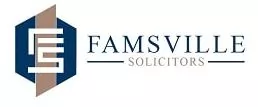BACKGROUND
This briefing note is designed to give some practical guidance to the Income Tax (Common Reporting Standard) Regulations 2019 (the ''Regulation'') and the recently clarified directive (the ''Directive'') of the Federal Government of Nigeria (the ''FGN'').
The Regulation in question was issued further to the powers conferred on the Federal Inland Revenue Service Board (the ''Board'') by Section 61 of the Federal Inland Revenue Service (Establishment) Act, No. 13 2007 (the ''Act''). The Regulation was passed following Nigeria's signing of the Multilateral Convention on Mutual Administrative Assistance in Tax Matters (the ''MAC'') and the Multilateral Competent Authority Agreement (the ''MCAA'') on the Automatic Exchange of Financial Account Information, signed by Nigeria on 17 August 2017.
THE CONTROVERSY - RE-REGISTRATION DIRECTIVES TO BANK CUSTOMERS
On Thursday 17 September, 2020, the FGN issued a directive via its twitter handle, which read:
This is to notify the general public that all account holders in Financial Institutions (banks, insurance companies, etc) are required to obtain, complete and submit self-certification forms to their respective financial institutions.
"Persons holding accounts in different financial institutions are required to complete and submit the form to each one of the institutions. The forms are required by the relevant financial institutions to carry out due diligence procedures in line with the Income Tax Regulations 2019.
"The self-certification form is in three categories: - Form for Entity - For Controlling Person (individuals having a controlling interest in a legal person, trustee, etc) - Form for individual.
"Failure to comply with the requirement to administer or execute this form attracts sanctions which may include monetary penalty or inability to operate the account...."
The Directive raised concerns about the essence of the Bank Verification Number (the ''BVN'') which was made mandatory by the Central Bank of Nigeria (the ''CBN'') and the potential impact this new Directive would have on the Nigerian public, particularly a re-registration process with financial institutions when such exercise had already occurred.
The FIRS, in another tweet, clarified this Directive by stating that it didn't apply to everyone. Rather, the Directive was for the fulfillment of the Automatic Exchange of Information Requirements.
WHAT IS THE ESSENCE OF THE AUTOMATIC EXCHANGE OF INFORMATION?
The Automatic Exchange of Information (the '' AEOI'')1 was developed by the Organisation for Economic Co-operation and Development (the ''OECD'') in 2014 to combat tax evasion. The AEOI seeks co-operation between tax authorities in different countries, as local individuals may flout local tax laws. Since Nigeria signed the MAC, Nigeria is legally bound2 to ensure the implementation of the Automatic Exchange to benefit from the programme.
SELF-CERTIFICATION FORMS
The Self-Certification Forms (the ''Forms'') are to be administered on Reportable Persons3 who hold accounts in Financial Institutions known as ''Reportable Financial Institutions'' under the Common Reporting System (the ''CRS'').
Financial institutions also have to administer the Forms on account holders when the information shows that the account holder is an individual resident for tax purposes in more than one jurisdiction. This information is also expected to be available to the financial institution at the point of account opening for KYC and AML purposes.
OUR THOUGHTS IN CONCLUSION
Tax evasion is a thorn in the flesh of the FIRS and Nigeria losses billions of dollars every year4. Therefore, it's laudable that the Nigerian government and the FIRS want to clamp down on tax evasion by collaborating with several countries. However, it's equally important to ensure that information dissemination from the relevant regulatory authorities and Government is well thought out before issued to the public.
Footnotes
1 The Automatic Exchange of Information (AEOI) portal provides a comprehensive overview of the work the OECD and the Global Forum on Transparency and Exchange of Information for Tax Purposes in the area of the automatic exchange of information, in particular with respect to the Common Reporting Standard.
2 https://gallery.mailchimp.com/b950c02ae16c3d8cd57f8ab7e/files/87437234-fb08-491c-82ee-f6197a4d7e2f/guidelines_on_aeoi_2019.pdf accessed 21 September 2020
3 Reportable Persons are often non-residents. And other persons who have a residence for tax purposes in more than one jurisdiction or Country.
4 https://nairametrics.com/2019/10/23/nigeria-is-losing-15-billion-to-tax-evasion-firs-boss-reveals/ accessed 21 September 2020
The content of this article is intended to provide a general guide to the subject matter. Specialist advice should be sought about your specific circumstances.

